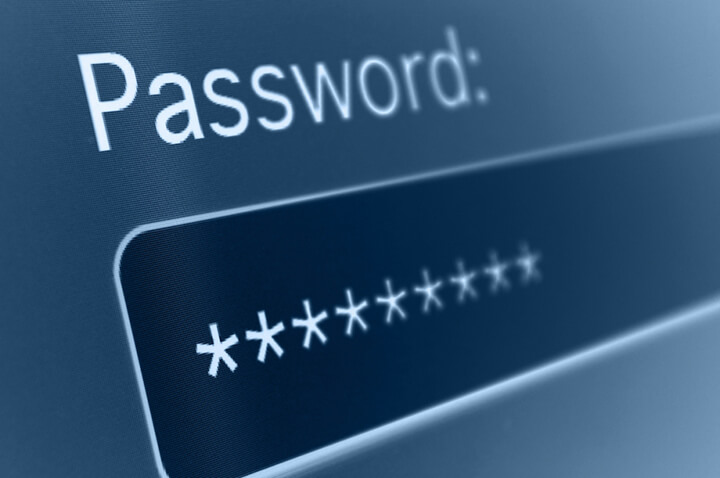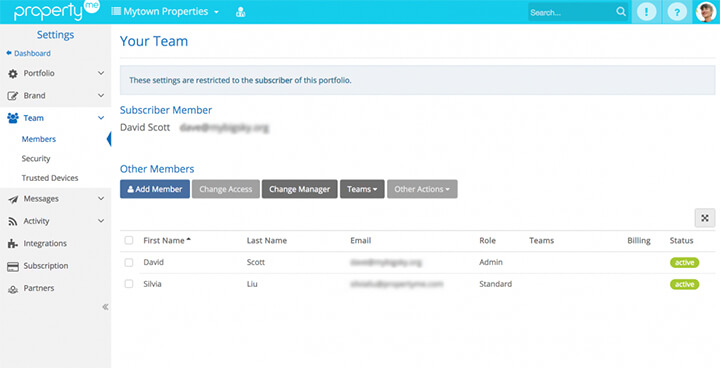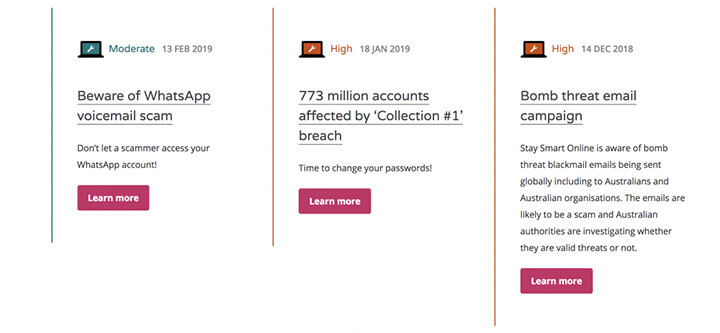Imagine losing all your contact, property and financial data due to user error, malware or a natural disaster. What would happen to your business’ reputation and continuity?
For many real estate agents and principals, the damage would be unthinkable. Not only would it negatively affect your business’ operations and reputation, but it would also affect your personal reputation as an agent and can put you out of pocket.
That’s why it’s crucial to be proactive when it comes to real estate cybersecurity. To help you out, here are our top six real estate cybersecurity tips to help you proactively protect your business and data:
1. Regularly backup your data

Data is the lifeblood of every real estate business so it’s important that you regularly back up your data to safeguard it. Think of it as “insurance” in the event of a data loss incident. Not only does this ensure that your data is easily recoverable but it also helps minimise the impact of a data breach on your operations.
According to backup best practices, you should follow the 3-2-1 rule. The 3-2-1 rule dictates that you should have at least three copies of your data, in two different formats, with one of those copies stored off-site. Additionally, your data should be encrypted (converted into code) when stored or sent online to reduce the risk of data theft, destruction or tampering.
Luckily, if you use a cloud storage solution like Dropbox or Google Drive, you don’t have to worry as your data is automatically backed up. Similarly, if you use a cloud property management software, there’s no need for manual backups as your data is automatically encrypted and backed up to the cloud. This is just one of the many benefits of cloud property software.
2. Use strong passwords

One of the most obvious ways to protect your data is to use strong passwords. Yet, TechRepublic reports that nearly 20% of enterprise users use passwords that are weak or shared, with 7% using “extremely weak” passwords such as “password” or “123456”.
A strong password should be at least eight characters long and should include a mix of upper and lower case letters, numbers and special characters. The password should not include any recognisable words or names, repeated characters or personal information such as your birthday. Learn more about how to create a strong password.
In addition to strong passwords, you should turn on two-factor authentication where possible to add an extra layer of security. This allows you to generate a unique code on either your mobile phone number or the Google Authenticator app as your second form of identification. After all, it is unlikely that an unauthorised user will have both your password and access to your mobile phone.
3. Protect your computer and devices

Another top real estate cybersecurity tip is to protect your computer and devices from viruses, spam, phishing emails and malware. You can do this by installing security software such as antivirus to protect your devices against common viruses, spam filters to reduce the likelihood of staff receiving and opening phishing emails and firewalls to protect your internal networks.
Moreover, be sure to set your security software and operating systems to automatically update so that any new security holes and vulnerabilities can be patched up as soon as possible. This helps ensure your devices are protected from ever-evolving threats and attacks.
4. Manage user permissions
When it comes to accessing real estate data, different team members are privy to different information. That’s why it’s important to be able to easily manage and customise user permissions.
For example, your trust accountant should only see portfolio information that is relevant to them and if a team member leaves for another agency, you should be able to revoke their access and log them out any programs or accounts that belong to your agency.

Here at PropertyMe, we have many granular user management options that allow you to customise team member access and control what they see or do in your portfolio. You can also revoke their access, remotely log them out, reset their password or two-factor authentication or even expire a device’s authentication altogether.
PropertyMe also sends you an email if sensitive changes have been made or when someone tries to access your account from a new computer or mobile device. These messages allow you to quickly identify any security breaches and take action if you don’t recognise the activity. Learn more about PropertyMe security.
5. Educate your employees on policies and procedures

According to IT Governance UK, four out of five top causes of data breaches are due to human or process error. That’s why it’s critical that you regularly educate your employees on real estate cybersecurity policies and procedures.
This might include education around different types of data breaches, managing user permissions, what business information can and cannot be shared online, avoiding fraudulent emails, how to create strong passwords, enabling two-factor authentication and identifying and reporting suspicious online activity.
In addition to that, your employees should know how to identify a data breach and what to do in the event of a breach. This will allow them to react in a timely manner to minimise the impact of the breach on your business.
6. Stay informed about the latest cybersecurity threats
 Image credit: staysmartonline.gov.au
Image credit: staysmartonline.gov.au
Every year, thousands of cyber attacks and breaches impact businesses in Australia. Cybercriminals get more advanced every day so it’s essential that you and your staff stay informed about the latest cybersecurity threats, trends and prevention technology.
Be sure to subscribe to Stay Smart Online to receive up-to-date email or social media alerts on the latest threats, scams and vulnerabilities within Australia. The sooner you know about a cybersecurity threat, the sooner you and your team can mitigate the risk of a breach.
Thanks for reading this blog on the Top 6 Real Estate Cybersecurity Tips. Hopefully they help you proactively protect your real estate business and data before it’s too late.
You might also be interested in How To Protect Your Business From Malware Attacks, Is Your Data as Secure as You Think? and Top 6 Benefits of Cloud Property Management Software.
Did we miss anything a top real estate cybersecurity tip? Please let us know in the comments below.


